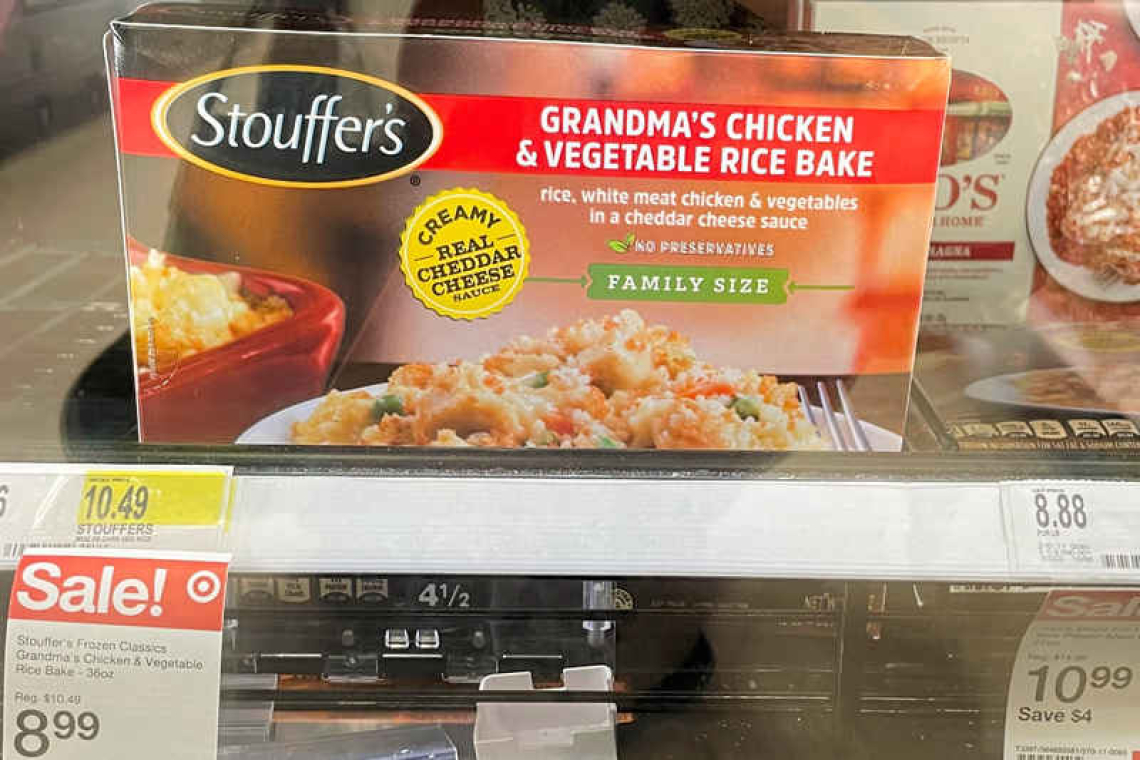NEW YORK--Americans relying on government benefits to buy food and other essentials are slashing spending, prompting food makers like Kraft-Heinz and Conagra Brands to overhaul their products and strategies following years of price hikes. Many of the biggest makers of packaged foods and drinks are seeing their sales volumes fall, due partly to low-income consumers -- typically making roughly less than $35,000 per year -- cooking from scratch, using up leftovers or just buying less. Roughly one-third of Black American households and 21% of white American households fell into this category in 2022, according to the latest available U.S. census data. "We expect reduced SNAP [food stamp] benefits will be a headwind," Dollar Tree CEO Richard Dreiling said during a March 13 earnings call. Dreiling was referring to the U.S. government's supplemental nutrition assistance programme (SNAP), which provides benefits to low-income families to help them afford groceries. At Circle K convenience stores, sales from people using food stamps were down 40% from last year. "We can look geographically and see that where we've got lower-income consumers, our results are worse," Brian Hannasch, CEO of Alimentation Couche-Tard, which operates Circle K, said during a March 21 earnings call. To appeal to Americans who can no longer afford fast food, Conagra in late May will introduce new Banquet chicken patties, priced at $6.99 for six, a company spokesman said. Chicken sandwiches are top picks at fast-food chains. Sherry Frey, NielsenIQ vice president of wellness, said that low-income consumers eat less produce and fresh meat than wealthier shoppers. "For sure SNAP and WIC shoppers are looking for value," Frey said, referring to government food benefits for women, infants and children (WIC). "Unfortunately so many SNAP and WIC shoppers are food insecure and they’re subsidizing at food banks as well." People struggling to make ends meet are buying “whatever is on the shelf that you can stretch longer and further to feed the many mouths that might be sitting around the table," said Carlos Rodriguez, chief policy and operations officer at City Harvest, which distributes fresh food in New York City. They are "forgoing items you normally want, which is fresh nutritious food,” Rodriguez said. Consumer companies' new emphasis on value and discounts is a reversal from their strategy during the pandemic and immediately after, when they focused on premium products, touting new flavours and options in an effort to justify climbing prices. Now food companies must “make sure they are attracting the value buyer back into the fold,” said Duleep Rodrigo, U.S. consumer and retail sector leader at KPMG. “They can’t get volume without this key segment.” Some shoppers are ditching low-calorie snacks like popcorn for more filling ones, executives have said. Hershey rolled out bigger bags of Skinny Pop, which are cheaper per ounce than smaller sizes. PepsiCo has new campaigns in the works to promote its competing Smartfood brand, a spokesperson said. A spokesperson for Coca-Cola said the soft drinks maker has been increasing the number of weeks that retailers are promoting 1.25 liter sodas as part of a value bundle targeted to appeal to price-conscious and lower-income consumers. Nissin Foods, whose products like Cup Noodles sell for under $1, saw unit sales decline last year in its category, Brian Huff, CEO of the U.S. division of the Japanese company, said in a March 18 interview. The company is investing in buy-one-get-one-free deals at Florida-based Publix, for example, and other promotions to encourage so-called pantry loading, Huff said. Kraft macaroni and cheese maker Kraft Heinz, cereal company WK Kellogg and Kellanova, which sells Pringles chips, are among the food companies ratcheting up discounts after a years-long hiatus during the pandemic, investment bank Jefferies said in an April 3 research note. Conagra's approach to discounts is to make them more frequent instead of deep, CEO Sean Connolly said in an interview April 4. "We might invest to get below a key price threshold," Connolly said, such as discounting an item regularly priced at $3.25 to $2.99. It's "a shallow discount but something to make it provocative and make it therefore more effective."







